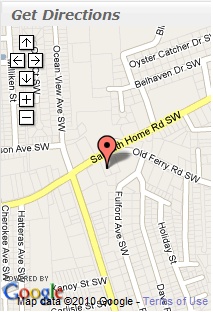Civil Litigation

Civil trials are very different in character from criminal trials, and have separate procedural rules and practices. The basis for civil law is the federal and state constitutions, statutes, and judicial decisions that have been made in previous proceedings.
The most common civil cases involve:
- Breach of contract
- Personal Injury
- Malpractice
- Construction Litigation
- Labor and Employment
- Insurance Disputes
- Commercial Contracts
The Del Re Law Firm has experience in all facets of civil litigation law and has assisted individuals, sole proprietors and corporations in civil litigation suits. Contact our law firm for a free consultation regarding your case.
Civil Litigation FAQ
- How long do I have to file a civil litigation suit?
- What are the titles of the parties involved in the suit?
- How does the litigation process work in civil litigation?
- Where will my suit be filed?
- What are pleadings and motions?
- What is the discovery process?
- How can I help during the discovery process?
- How long before our case will go to court?
- What is an out of court settlement?
- Will I get a jury trial?
There is a statute of limitation on all civil litigation cases. Contact our firm to determine the limitations that exist for your situation.
The person who files the lawsuit is known as the Plaintiff. The person being sued is the Defendant. It is possible to have more than one Plaintiff or Defendant in a case.
The process starts when the Plaintiff sues. The Defendant answers the suit and possibly brings others into the suit, or files a counter suit against the Plaintiff. The discovery process begins. At this point, an out of court settlement may be reached. If not, the trial starts. A verdict is given. Either party may appeal the verdict.
The first thing that must be determined in a civil litigation suit is where the suit will be filed. Typically cases are filed in state, rather than federal courts. There are, however, 3 situations where federal courts have jurisdiction. The most common is when the amount of money exceeds 50,000, and the parties live in different states. The other two are when a claim is authorized by federal statutes, or when a claim is made against the federal government.
Plaintiffs filing in state court typically prefer to file in their home state. Should the defendant lived out-of-state, there are still options available for filing with in the home state. For instance, if the plaintiff is able to serve the defendant in the plaintiff’s home state, they could then force the defendant to appear there for trial.
If the defendants property is the subject matter of dispute, and is in the plaintiff’s home state, in state jurisdiction is also typically awarded. Finally, if the plaintiff can show some minimal amount of contact between the defendant and the plaintiff’s home state, jurisdiction could be awarded.
Once jurisdiction is decided, the next consideration is the venue. Venue describes the particular county or geographical area where a court with jurisdiction may decide a case. Typically, the main consideration in determining venue is what is most convenient to the parties involved.
Once location is determined, the next step is to prepare pleadings and motions. The pleadings are the formal allegations by the parties of their respective claims and defenses, for the judgment of the court. Motions are a procedural device in law to bring a limited, contested issue before a court for decision. These preliminary issues are usually sorted out during pretrial conferences where courts review and rule on the pleadings and motions.
One of the first things the court will rule on in these pre trial conferences is whether the plaintiff has standing to actually file the suit. Standing means the legal right to bring a lawsuit. Generally, only a person with something at stake has standing to bring a lawsuit. Other parties may join the lawsuit as an additional plaintiff, if they have experienced a similar event, are seeking the same relief from the court, and both cases involve a common question of law or fact. When additional plaintiffs are added, this is called a joinder.
The court must also determine whether the case is ready and justiciable, meaning that it’s proper for judicial determination. In other words, courts don’t hear cases based on hypothetical or abstract situations. There must be some type of actual injury or harm done, and it must have been caused by another party, to warrant a court hearing a case.
Some complaints may not state a claim where judicial relief may be sought. In this case, the defendant may request a summary judgment. In effect, this consists of the defendant asking the court to issue a final judgment in their favor. The plaintiff may also submit a motion for summary judgment.
Both the plaintiff and the defendant begin their case by gathering information as to how much pertinent evidence the opposition party has. This is through the process of discovery. There are several methods which can be used during the discovery process.
They are:
Request for Documents: All documents related to the trial that are held in the opposition’s possession, are requested by the other party. This could be documents, videos, files, film, photographs, etc..
Depositions: There are basically a question and answer session that typically occurs at either the plaintiff or defendant’s attorneys law office. Witnesses are asked questions to determine what their responses will be during the trial. The attorneys then use this information to help prepare their case.
Interrogatories:These are questions that are sent to the witnesses in written form to be answered. They are very similar to depositions, but in writing.
Request for Admission: This is where one party requests the other party to admit or deny certain facts. This is helpful in narrowing down the case so that only the disputed facts are focused on when going to court.
The discovery process is a crucial part of any civil litigation case. You can ensure a successful process by following these steps:
Ensure all the information you have supplied your attorney with is accurate and complete. There will often be things you remember after your initial statement, so make sure you let your attorney know about anything you remember after the fact. Also, should any of your information change, make sure your attorney is made aware of this.
Provide all documents requested by the opposing counsel. This is very important. You can almost be certain that, even if you don’t provide the documents, they will find a way into the opposing counsel’s hand, and will be brought up in court. It’s much better to get all the potentially embarrassing or damaging documents to your attorney so he can prepare the proper response for trial.
Review all the pleadings in the case.Your attorney does not have the first hand knowledge of the case as you do. Make sure you look over all documents to ensure crucial evidence has not been missed. You should also review all of the opposing parties information to find any discrepancies in their statements. These are the things the attorney will focus on in the trial.
Prepare extremely well for the deposition and interrogatories. These should be taken extremely seriously. Be sure that you are as accurate and truthful as possible. During a deposition, it’s not only important what you say, but how you say it. The opposing party’s attorney will be looking at your demeanor, and stage presence to gage how well you will do in court, and whether the jury will find you a likeable and trustworthy witness.
Credibility can be a big issue when the case comes down to your version of events versus someone else’s. After the deposition or interrogatory is complete, should you realize that some of your answers may have been in error, contact your attorney as soon as possible so that he can correct any inconsistencies. This is crucial, as your credibility will be greatly diminished should your answers differ between your deposition statements and what you say and in court.
It depends. The trial is scheduled after the discovery process ends. Many cases are settled by an out of court settlement before trial ever starts.
An out of court settlement is simply a settlement reached out of court that is acceptable to both parties. Because civil litigation is a dispute between two private parties, the parties can reach a settlement on their own at any time. Typically, both parties compromise to reach this settlement. This is often the preferred method to settle these disputes since trial is an expensive alternative and the possible outcome of a trial is never certain.
It depends. First, not all civil cases are eligible for a jury trial. It depends on the amount of money involved. Typically, if it’s less than $10,000 the case will be heard by a judge. If the money is over $10,000, the Plaintiff can usually decide whether they want their case to be heard by a judge or jury. This is usually done after it is clear that no settlement will be reached between the parties. All federal court cases are eligible for a trial by jury.

